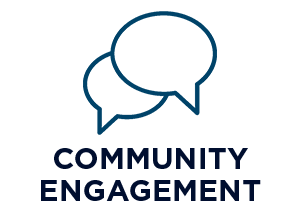Our Foundational Principles
Innovation
The Cato T. Laurencin Institute for Regenerative Engineering believes that regenerative engineering offers solutions and hope for people who have ailments that today are beyond repair.
Education
The Cato T. Laurencin Institute for Regenerative Engineering is committed to promoting the professional development of UConn faculty and students, embracing the diversity of human talent in our communities.
Collaboration
The Cato T. Laurencin Institute for Regenerative Engineering is committed to collaboration, serving as a bridge across the wide range of disciplines dedicated to regenerative engineering research.
Community
The Cato T. Laurencin Institute for Regenerative Engineering believes that interactive community engagement is fundamental to the fulfillment of its societal commitment to the resilience of human function.
Areas of Focus
The grand challenge to regenerate complex tissue and organ systems calls for a paradigm shift that requires a transdisciplinary approach. The field of regenerative engineering uses a convergence approach to create a regenerative toolbox to move beyond individual tissue repair to the regeneration of complex tissues and organ systems. The Cato T. Laurencin Institute for Regenerative Engineering has defined regenerative engineering as a new field that convergences advanced materials sciences, stem cell sciences, physics, developmental biology, and clinical translation to foster scientific innovation.
Embedded in this new field include the following 5 areas:
Advanced Materials Sciences
The field of materials science has significantly advanced from the level of biodegradable polymers and ceramics to custom designed biomimetic inductive biomaterials with carefully modulated physical, mechanical, and biological properties to enhance the natural regenerative process of the body.
Stem Cell Sciences
The progress in the field of stem cells research represents great scope in regenerative engineering.
Physics
Physical forces play a subtle but crucial part bio-fitness and resilience.
Developmental Biology
Principles found in embryological development and in developmental morphogenesis will ultimately be critical for addressing grand challenges in regeneration.
Clinical Translation
The growing evidence of achieving better functional outcomes in larger animals using a biomaterial approach compared to smaller animals mirrors the translational potential of inductive biomaterials.



